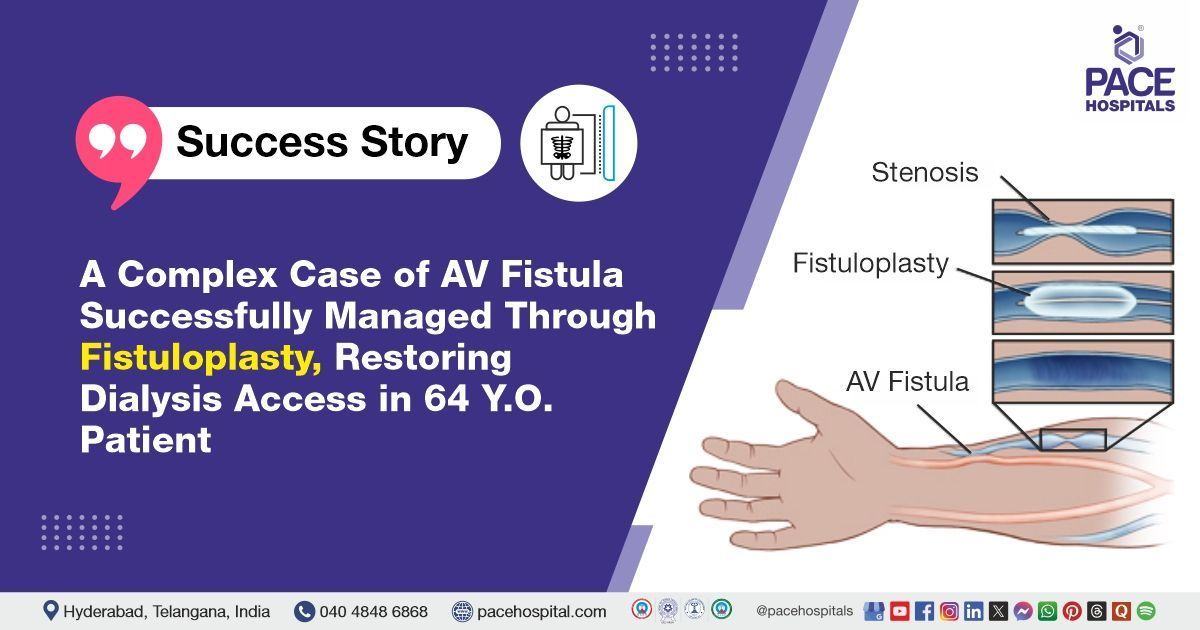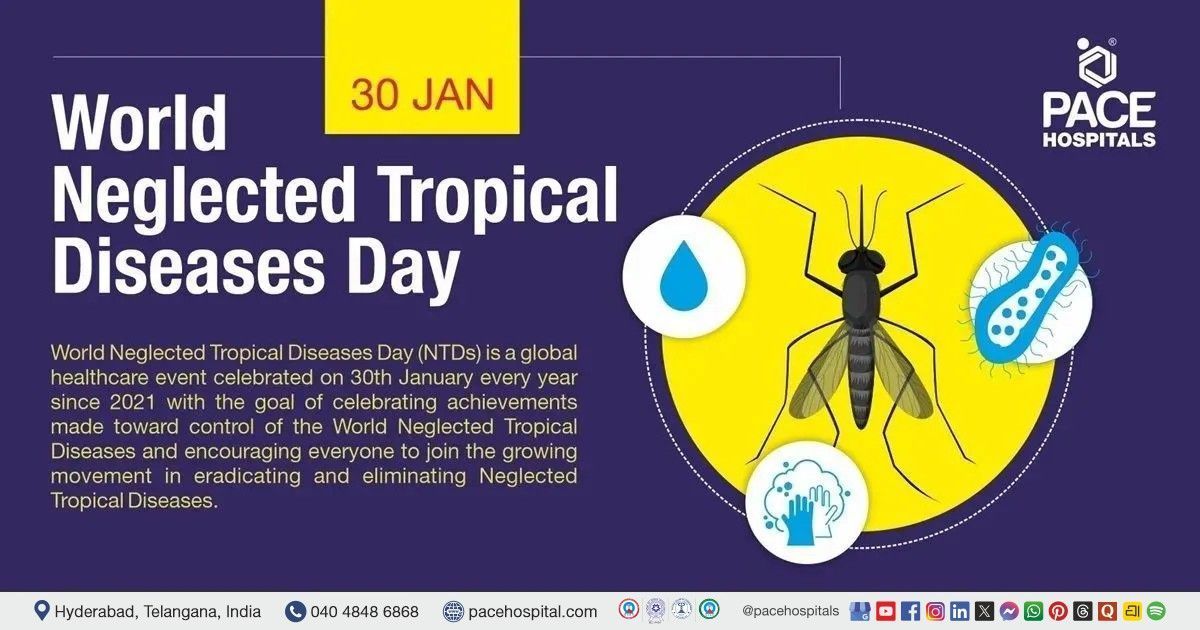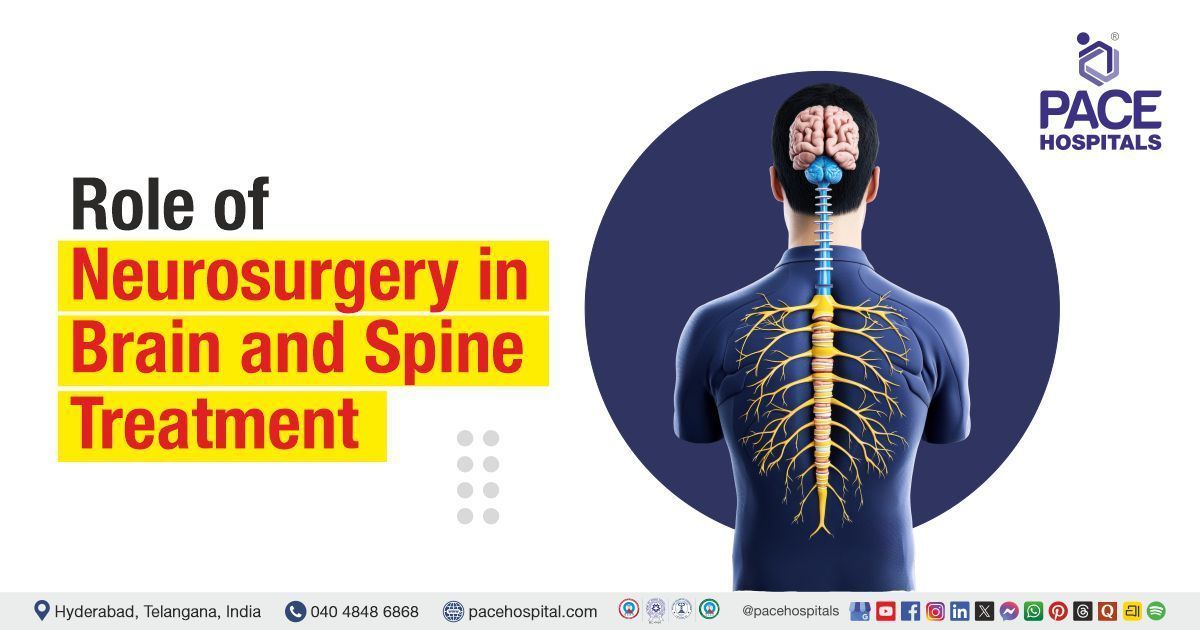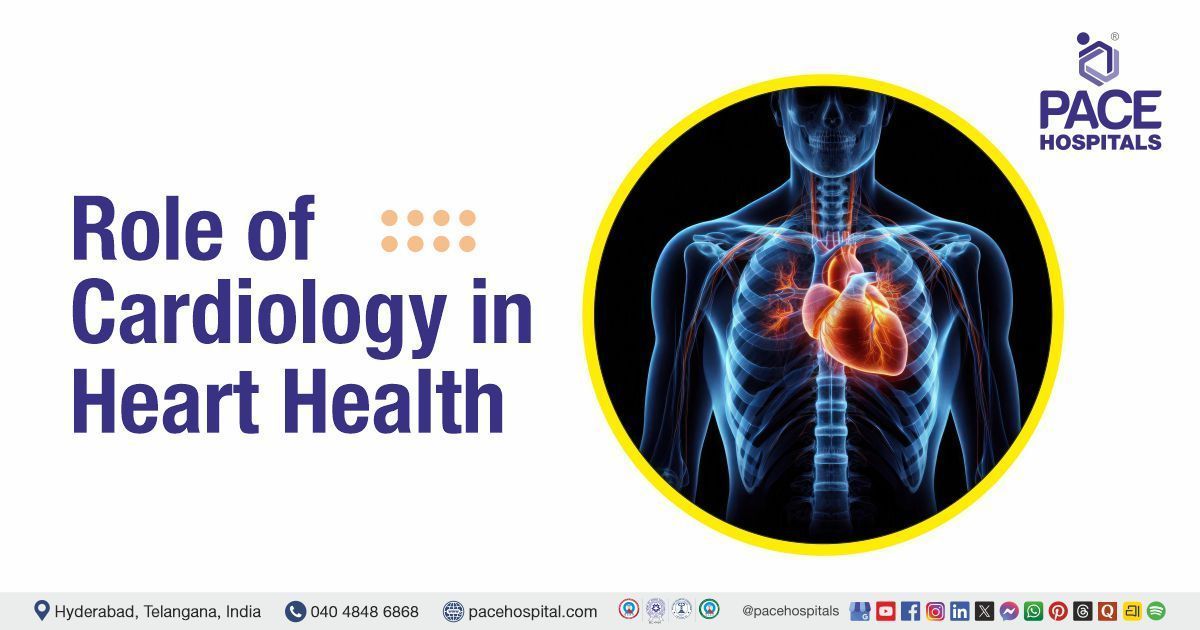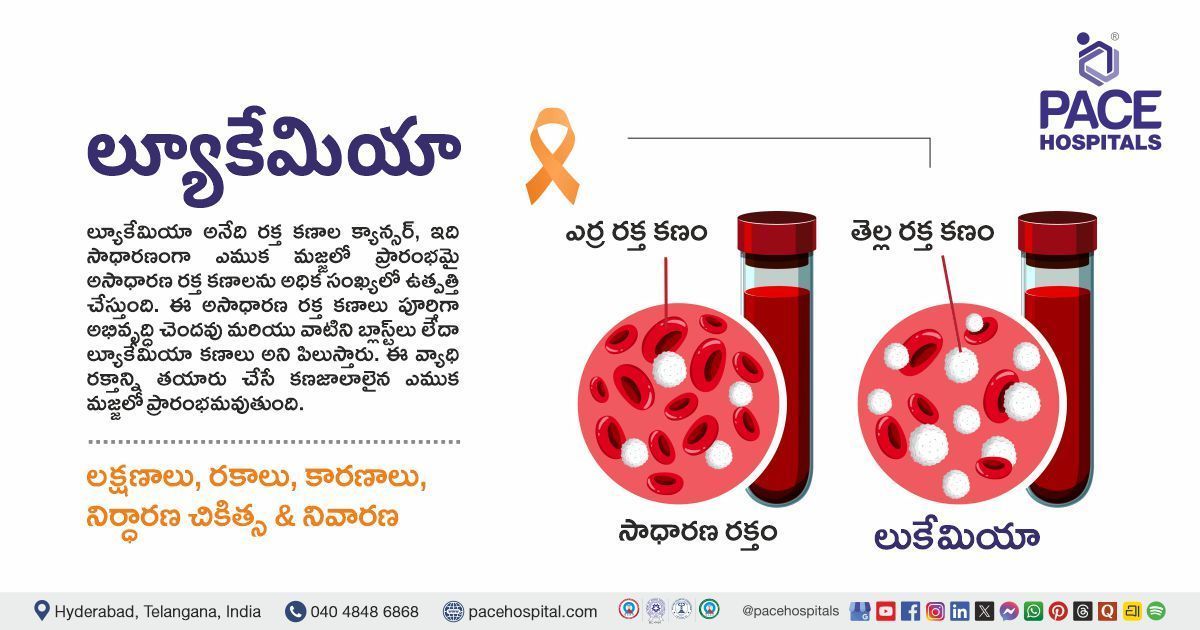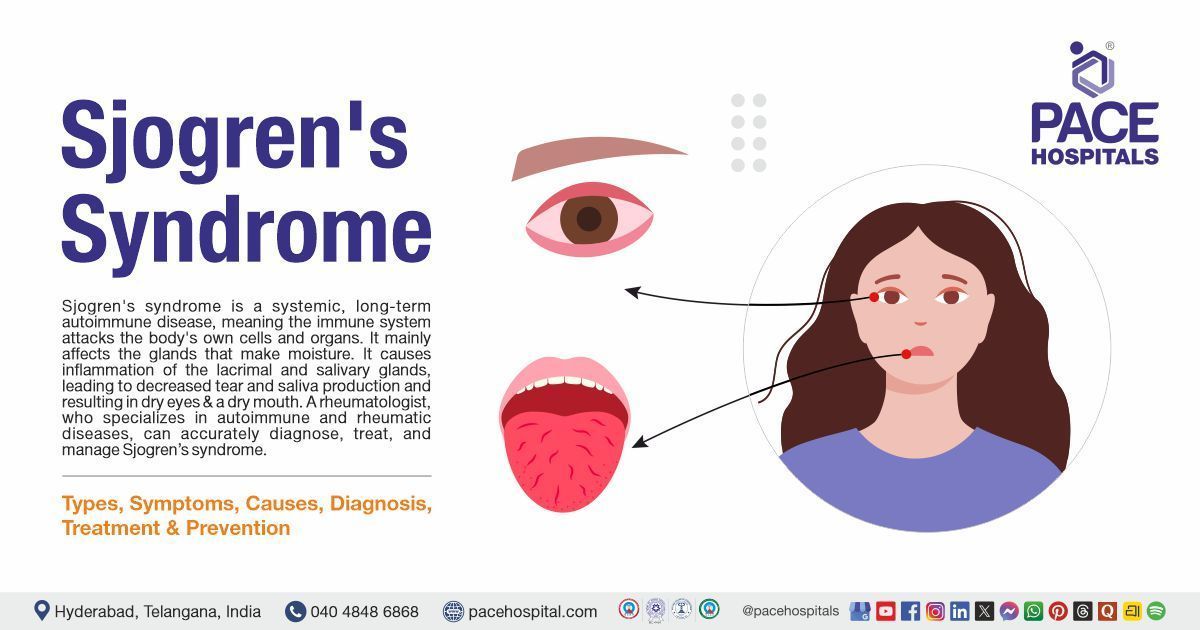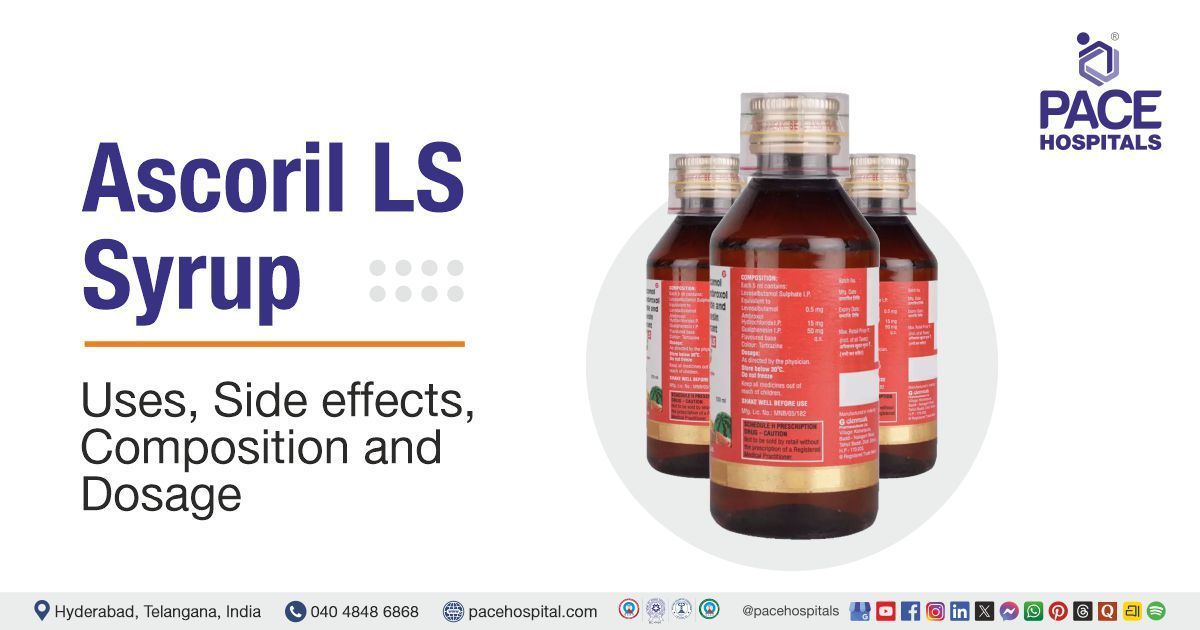Complex AV Fistula in 64 Y.O. Patient Successfully Treated with Fistuloplasty
PACE Hospitals
The Interventional Radiology team along with nephrology team at PACE Hospitals successfully performed an AV fistulogram and fistuloplasty on a 64-year-old male patient who had been experiencing a gradual enlargement of the fistula vein in his left arm, thereby restoring proper blood flow and ensuring efficient dialysis access.
Chief Complaints
A 64-year-old male patient presented to the Interventional Radiology Department, at
PACE Hospitals, Hitech City, Hyderabad, with a complaint of a gradually enlarging dialysis fistula in his left arm, raising concerns about potential complications.
History of present illness
The patient presented with a gradual increase in the size of the fistula vein in the left arm, which had become visibly swollen over time. This abnormal enlargement raised concerns about underlying issues such as stenosis (narrowing) or malfunction of the dialysis access, requiring further evaluation and treatment.
He had a history of fistuloplasty at another hospital. However, despite the previous procedure, the patient returned with a swollen fistula, likely due to re-narrowing (restenosis) or dysfunction of the dialysis access over time.
Past History
The patient is a known case of chronic kidney disease (CKD) on maintenance haemodialysis, with associated comorbidities including hypertension, hypothyroidism, and bronchial asthma. He previously underwent a renal transplant, which was later complicated by graft failure following an episode of right leg cellulitis.
An initial attempt to create an arteriovenous (AV) fistula in the left forearm was unsuccessful, after which he underwent a left basilic vein transposition (BVT) with brachio-basilic AV fistula (BB AVF). This access served for dialysis prior to the transplant and has continued to be used for maintenance haemodialysis since the graft failure. Over time, the fistula developed multiple complications including aneurysm formation, thrombosis, and narrowing, which required several interventions such as aneurysm resection, thrombectomy, angioplasty, and aneurysmorrhaphy.
These procedures were performed at various healthcare centers outside of PACE Hospitals. Despite multiple corrective interventions, including a recent fistuloplasty, the patient continued to experience issues with a swollen and dysfunctional fistula, leading him to seek further evaluation and management at PACE Hospitals after several failed attempts elsewhere.
Diagnosis
The patient was diagnosed with aneurysmal dilatation of the arteriovenous (AV) fistula in the left arm. This fistula had been surgically created through basilic vein transposition (BVT), a procedure in which a deep vein is repositioned closer to the skin to facilitate dialysis. The dilatation likely developed as a result of prolonged use of the access site for haemodialysis.
Medical Decision-Making (MDM)
After consulting with Dr. Lakshmi Kumar CH, the consultant interventional radiologist, and collaborating with other specialists, including Dr. A Kishore Kumar, the consultant nephrologist and renal transplant physician a comprehensive evaluation was performed to determine the best course of treatment for the patient.
Based on their collective expertise, it was decided that an arteriovenous AV fistulogram and fistuloplasty would be the most suitable intervention. This decision was made considering the patient’s aneurysmal dilatation of the left brachio-basilic AV fistula, chronic kidney disease (CKD) on maintenance haemodialysis, and his complex medical history, which includes hypertension, hypothyroidism, bronchial asthma, and recurrent CKD following a previous renal transplant.
Surgical Procedure
All necessary investigations were completed, and a consultation with the radiologist was obtained. The patient then underwent an arteriovenous (AV) fistulogram in Hyderabad at PACE Hospitals, which was carried out under aseptic precautions with informed consent, using ultrasound and fluoroscopy guidance. The fistulogram provided detailed imaging of the AV fistula, revealing a narrowing (stenosis) in the "swing segment" of the vein, which was causing sluggish blood flow and making it harder for the blood to flow properly through the fistula.
After identifying the stenosis and sluggish flow, the doctors performed fistuloplasty in Hyderabad, India. Using a balloon, they gradually widened the narrowed segment, which helped restore proper blood flow and improved the function of the fistula for effective haemodialysis. These interventional procedures are essential for evaluating and addressing complications in dialysis access.
Postoperative Care
The postoperative period was uneventful. During the hospital stay, the patient was prescribed several medications, including anticonvulsants, phosphate binders, glucocorticoids, corticosteroids, anticoagulants, antispasmodics, laxatives, and erythropoiesis-stimulating agents (ESAs).
Discharge Notes
The patient was discharged in a hemodynamically stable condition.
Discharge Medications
Upon discharge, the patient was prescribed a combination of medications, including an analgesic to be taken "as needed" for pain relief. Additionally, the patient was instructed to continue all other medications as prescribed by the other physicians.
Emergency Care
The patient was advised to promptly visit the Emergency Department at PACE Hospitals in case of any emergency, including the development of bleeding, an acute increase in the size of the fistula vein, altered level of consciousness, new onset of pain, or any other significant complaints.
Review and Follow-up Notes
The patient was advised to schedule a follow-up appointment with Dr. Lakshmi Kumar in the OPD after 14 days.
Ultrasound Evaluation of Arteriovenous Fistula Complications in Dialysis Patients
AVF (Arteriovenous Fistula) failures often happen because the blood vessels used during surgery are not suitable. Ultrasound (USG) guidance during AVF creation leads to improved outcomes by reducing the risk of immediate failure, minimizing early blood clot formation (thrombosis), and enhancing the long-term functionality of the fistula.
Performing an ultrasound scan before surgery (preoperative vascular mapping) helps a nephrologist/nephrology doctor clearly see and choose the best blood vessels for fistula creation—especially in patients who are difficult to assess, such as those who are obese, have weak or absent pulses, or have had multiple surgeries before. In such cases, physical examination may not give enough information, but Doppler ultrasound (DUSG) can provide a clear and accurate diagnosis, especially when symptoms of complications are similar or overlapping.
Share on
Request an appointment
Fill in the appointment form or call us instantly to book a confirmed appointment with our super specialist at 04048486868

